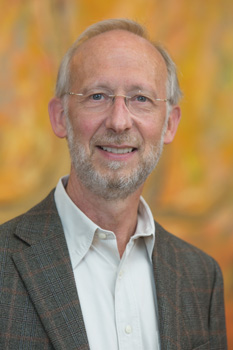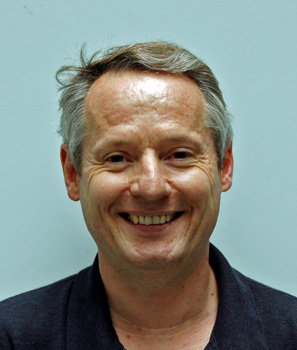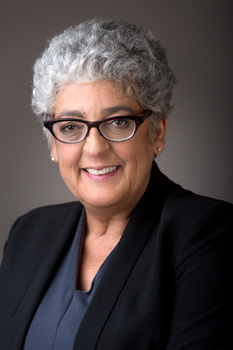Three UC San Diego Professors Named Recipients of 2018 Breakthrough Prize
Each will receive $3 million award for research in life science or math
By:
- Heather Buschman
- Cynthia Dillon
Media Contact:
- Cynthia Dillon - cdillon@ucsd.edu
- Heather Buschman - hbuschman@ucsd.edu
Published Date
By:
- Heather Buschman
- Cynthia Dillon
Share This:
Article Content
Two full-time University of California San Diego faculty members — Don Cleveland, who studies fundamental cellular mechanisms in the search for new treatments for diseases like amyotrophic lateral sclerosis (ALS), and James McKernan, a mathematician who investigates algebraic geometry and multivariate polynomials — are recipients of the 2018 Breakthrough Prize, along with Joanne Chory, a plant biologist at Salk Institute for Biological Studies and adjunct professor in the Division of Biological Sciences at UC San Diego.
Each will receive a cash award of $3 million.
“We are so proud of our faculty — professors Don Cleveland, James McKernan and Joanne Chory — for receiving the prestigious 2018 Breakthrough Prize. These awards garner global attention for their innovative work in medicine, mathematics and biology, and underscore UC San Diego’s penchant for pushing the boundaries of knowledge and challenging expectations,” said Chancellor Pradeep K. Khosla. “Our exceptional scholars take risks, redefine conventional wisdom and transform lives of people around the world through their groundbreaking research and discoveries.”
The Breakthrough Prize, established in 2012, is the collaborative creation of Mark Zuckerberg, founder of Facebook, and his wife, Priscilla Chan; Sergey Brin, co-founder of Google and his wife, Anne Wojcicki, founder of the genetics company 23andMe; and Yuri Milner, a Russian businessman and philanthropist. It celebrates scientists who ask big questions that inspire and improve lives, with awards in three categories: fundamental physics, life sciences and mathematics.

Don Cleveland,PhD, Distinguished Professor of Cellular and Molecular Medicine, Neurosciences and Medicine.
Don Cleveland, PhD, is Distinguished Professor of Cellular and Molecular Medicine, Neurosciences and Medicine and chair of the Department of Cellular and Molecular Medicine at UC San Diego School of Medicine, as well as a member of the Ludwig Institute for Cancer Research, San Diego. He was awarded a 2018 prize in life sciences for his work “elucidating the molecular pathogenesis of a type of inherited ALS, including the role of glia in neurodegeneration, and for establishing antisense oligonucleotide therapy in animal models of ALS and Huntington’s disease.”
Cleveland has made seminal contributions to the understanding of how brain cells grow during normal mammalian development and how defects in those mechanisms lead to inherited neurodegenerative diseases, such as ALS and Huntington’s. Breaking with the mainstream belief in the field, Cleveland discovered that the genetic mutations that cause these diseases affect not just neurons, but the entire neighborhood of brain cells. He was the first to purify tau, the protein that mis-assembles and accumulates in Alzheimer’s disease and chronic brain injury, where it correlates with cognitive decline.
Based on these fundamental findings, Cleveland and his colleagues developed a ground-breaking approach to treating neurodegenerative diseases: designer DNA drugs that reduce synthesis of the toxic proteins produced by gene mutations or increase production from poorly expressed genes. This technology has already proven successful — it’s the underlying principle behind Ionis Pharmaceuticals’ FDA-approved therapeutic for spinal muscular atrophy, an inherited muscle wasting condition that was previously always fatal. Now, kids who were completely immobilized are walking. Similar designer DNA drugs are currently in clinical trials for the treatment of ALS, Huntington’s disease and Alzheimer’s disease.

James McKernan, PhD, Professor Above Scale and Charles Lee Powell Endowed Chair in Mathematics II.
James McKernan, PhD, is a Professor Above Scale and Charles Lee Powell Endowed Chair in Mathematics II at UC San Diego. He is being awarded the 2018 Breakthrough Prize in mathematics “for transformational contributions to birational algebraic geometry, especially to the minimal model program in all dimensions.”
Birational geometry is a field of algebraic geometry that aims to make determinations about algebraic varieties — the set of solutions of a system of polynomial equations over real or complex numbers. McKernan’s work has been recognized by professional organizations and he has won several awards, including the Clay Research Award and the Cole Prize in Algebra, and he is a Simons Investigator.
McKernan is also a longtime, active educator who values diversity. He has taught a graph theory course to many underrepresented students. He also directs an American Mathematical Society summer school program to encourage underrepresented students near graduation and recent PhDs to collaborate. He teaches both undergraduate and graduate courses in mathematics at UC San Diego.

Joanne Chory, PhD, director of the Plant Molecular and Cellular Biology Laboratory at Salk Institute for Biological Sciences.
Joanne Chory, PhD, is a professor and director of the Plant Molecular and Cellular Biology Laboratory at Salk Institute and a Howard Hughes Medical Institute investigator. She was awarded a prize in life sciences “for discovering how plants optimize their growth, development, and cellular structure to transform sunlight into chemical energy.”
Chory has spent more than 25 years deciphering the mechanisms that allow plants to achieve flexibility in form, pioneering the use of molecular genetics to study how plants respond to their environments and producing major discoveries surrounding how plants sense light and make growth hormones. More recently, her research has also focused on turning this hard-won knowledge of plant biology into practical solutions for tackling global warming.
The Breakthrough Prize is intended to be inspirational and aspirational, often celebrating high-profile scientists who have tackled large and daunting challenges in three broad categories: fundamental physics, life sciences and mathematics. Past recipients have included Alan Guth, the inventor of inflationary cosmology, and Jennifer Doudna, co-discoverer of the CRISPR-Cas9 genome editing system.
In 2012, Napoleone Ferrara, MD, Distinguished Professor of Pathology at UC San Diego School of Medicine was named one of original Breakthrough Prize laureates for identifying the role of the human VEGF gene in promoting angiogenesis — the formation of new blood vessels that can feed tumor growth — and subsequent development of two major monoclonal antibody drugs: Bevacizumab (marketed as Avastin), which is used to treat multiple forms of cancer, including breast, brain and colorectal, and ranibizumab (marketed as Lucentis), which treats wet age-related macular degeneration, a leading cause of blindness in the elderly.
For more information on the Breakthrough Prize and a full list of this year’s winners, visit breakthroughprize.org
Share This:
You May Also Like
Stay in the Know
Keep up with all the latest from UC San Diego. Subscribe to the newsletter today.



